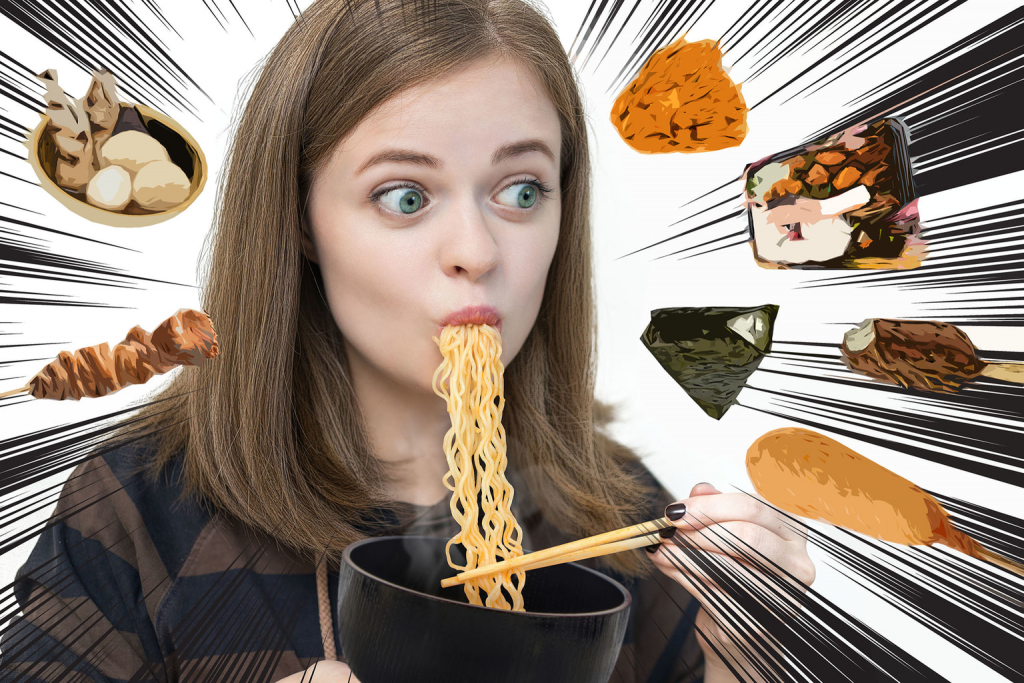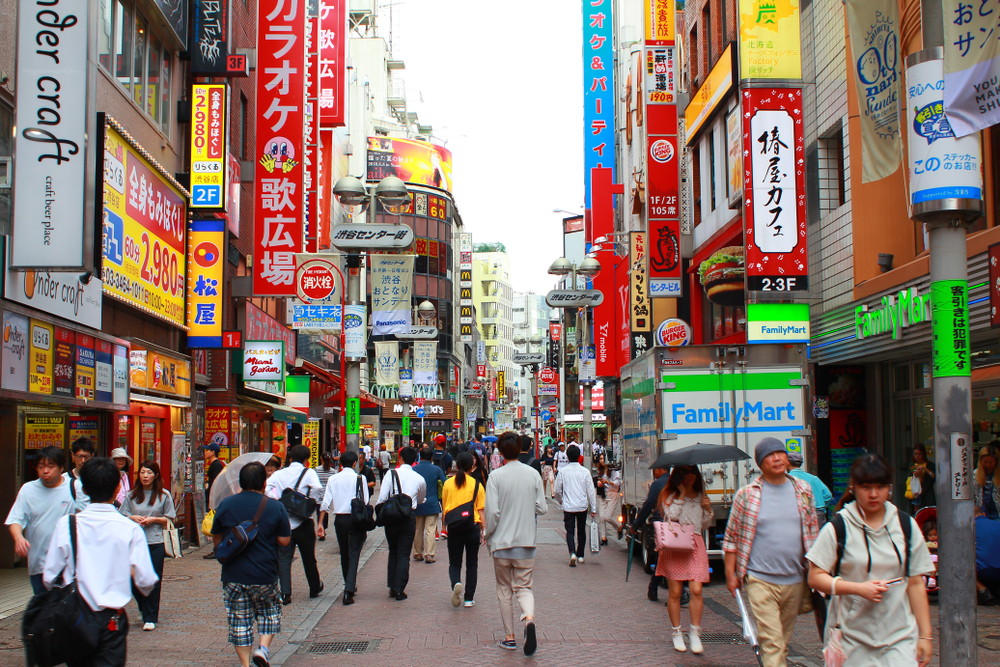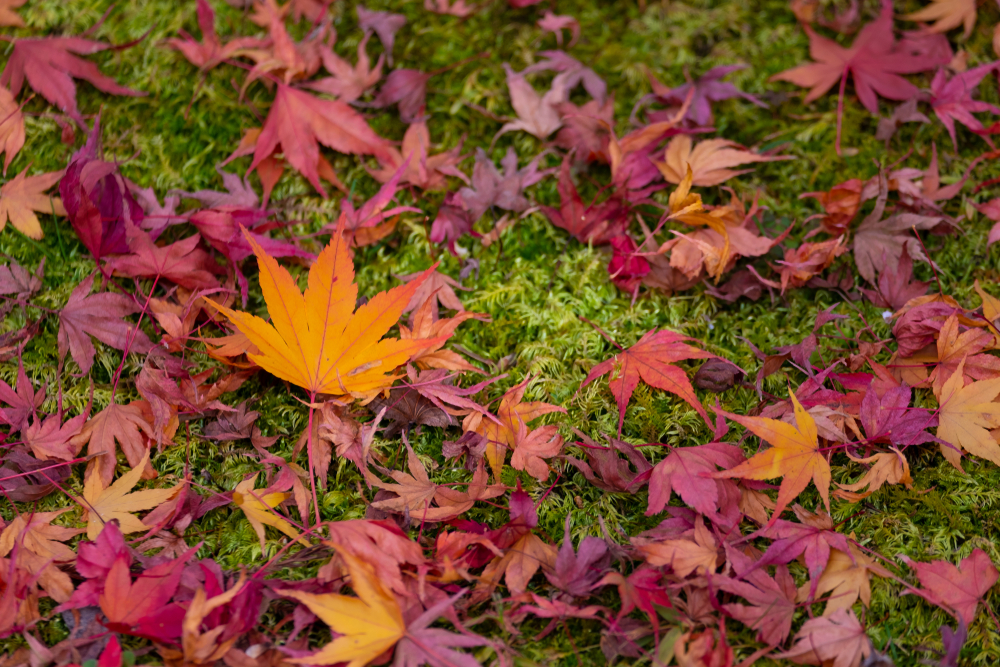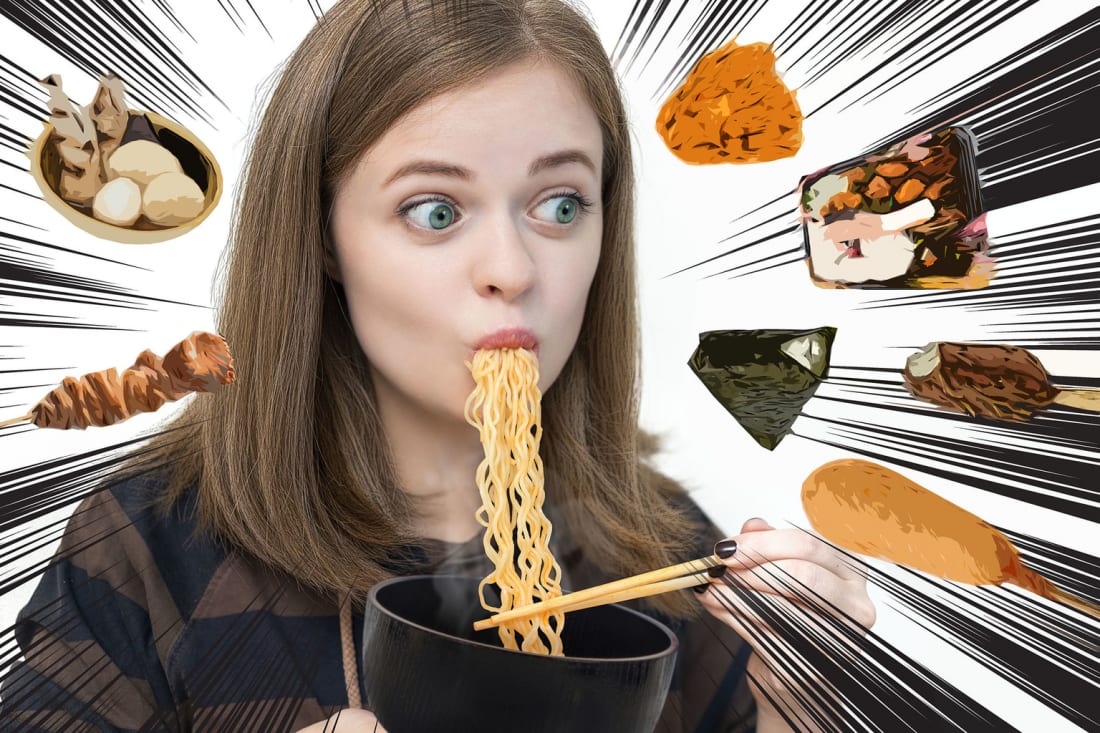Moving to a new country means that you’ll have to learn the language and new social cues, but it also means that you’ll voluntarily (or subconsciously) adjust your lifestyle to fit your new home. Coming from North America, there are many things about Japan that require an adjustment period. It takes a few months of commuting and exploring to start thinking like a Tokyoite and really start living your best life in Japan. Here are five habits I picked up and, frankly, don’t see myself giving up anytime soon.
Eating at any hour of the day – literally
Every time a friend or family asks me what my favorite thing about Japan is, this is what I tell them: “The convenience stores.” It goes without saying that Japanese food is delicious and rarely leaves me disappointed. Yes, Tokyo is the most inspiring city I’ve visited, but what really gets me are the familiar neons of Family Mart, 7-Eleven and other 24-hour stores that decorate the streets 365 days a year.
I can never stress how much they truly are the peak of convenience. Ran out of detergent on New Year’s Day? No problem. Need an extra clean pair of underwear? They’ve got your back. Hungry at 3am? A warm nikuman or Snickers chocolate bar is only a few minutes away. Having food available to suit almost any craving has truly spoiled me.
Carrying at least ¥10,000 in my wallet
Not the smartest move, to declare that on the internet. I’m far from being the only one though. In fact, many of you probably think ¥10,000 wouldn’t be enough.
If you’ve been in Japan for more than six hours, you know that the country favors cash (and oh so many point cards) and while you certainly can get your hands on debit and credit cards, chances are you’ll probably end up not being able to use them. It’s crucial to keep stocked with large bills, whether it’s to charge your Suica, buy something at the vending machine or pay for a taxi ride home.
Being on the look-out for seasonal flavors
Though we also have four seasons in Canada, there isn’t much that isn’t available year-round. You’ll find dozens upon dozens of apples at grocery stores long before and after September, and strawberries in February. Besides pumpkin spice lattes that come and go with the obligatory UGG boots, there isn’t much of an attachment or even attention to seasonal items or meals.
In Japan, however, it’s quite the opposite. Many dishes and ingredients are highlighted according to their best seasons. Restaurants have limited-edition menus, various companies release seasonal flavors of their most popular products. Yuzu shines bright in winter, nashi are fresh at the end of the summer. Of course, there are the cherry blossoms in spring and the fall colors through October and November.
Leaving sentences open-ended
This one is sure to be shared by fellow polyglots. As I’ve been studying Japanese and immersing myself in the language by watching any show I can find on Netflix and practicing with friends and colleagues, I inevitably picked up a few obviously-Japanese habits that have started to show whenever I speak English, French or Spanish.
Japanese is perfect for anybody who hates giving straight answers. In other words, while it may seem like you’re not answering the question or avoiding it, it’s actually about reading between the lines. Quite literally, get the hint. I’ve noticed that in the past couple of weeks I’ve been leaving my sentences open-ended instead of clearly stating what I’m trying to say. Here is how my conversations go now:
Friend: I finally got my package delivered!
Me: Great! We knew it was gonna take a bit of time but
[A few minutes later…]
Friend: But what?
Me: Oh, no that was the end of my sentence.
Slurping noodles
If you’ve been to any ramen restaurant in Japan, slurping sounds are essential to a casual and comforting atmosphere. Though I’ve been eating ramen embarrassingly regularly for a few years now, it’s only until very recently that I’ve been breaking out of my propper North-American manners. Yes, it really did take me that long to understand that in Japan nobody really cares as long as you’re not making a show out of it. There are many articles online about how slurping noodles are indicative of good manners in Asia or are a way to cool down the broth to avoid awful tongue burns. In my experience, eating ramen remains a dangerous activity for my sensitive mouth and I always go home with a few battle scars but it doesn’t stop me from going back for seconds.












